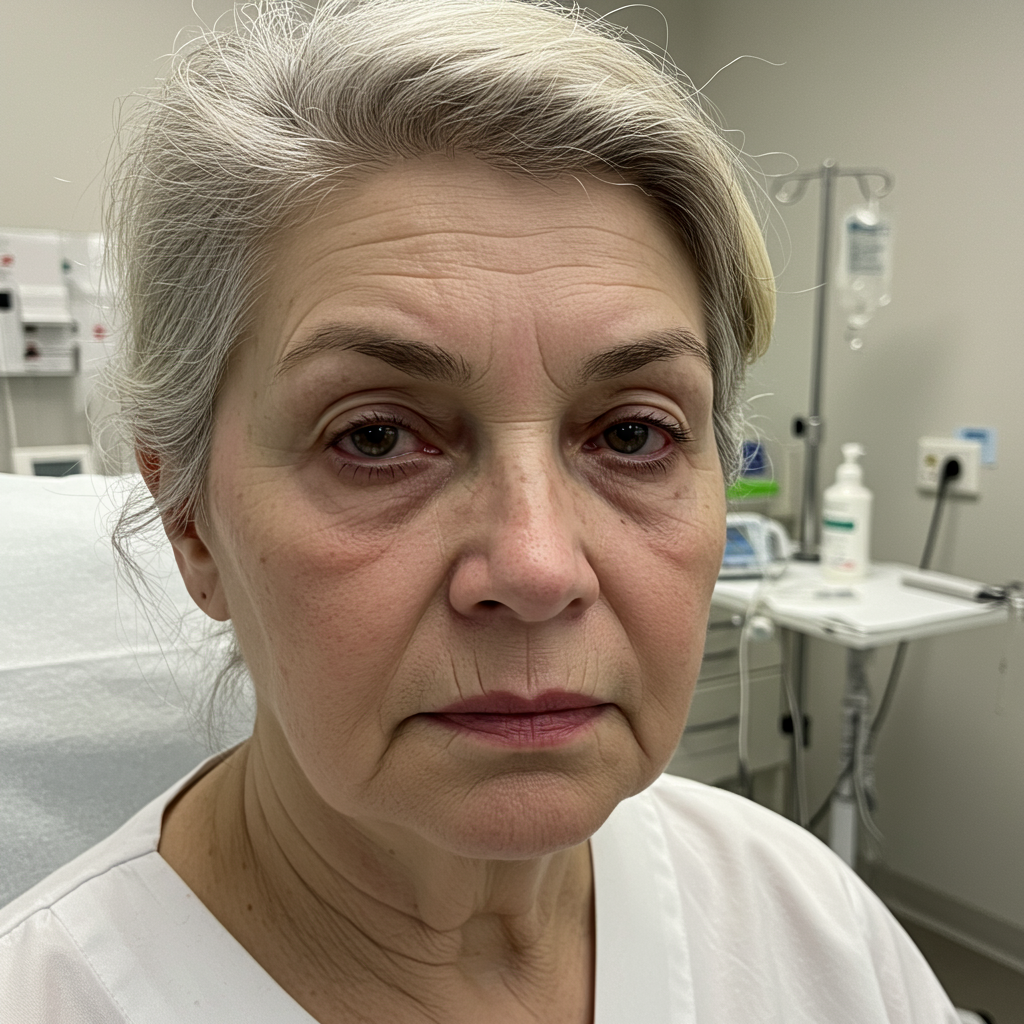Ignoring seemingly minor health symptoms can have serious consequences. medical professionals, from vascular surgeons to lab scientists and emergency room nurses, consistently share that paying attention to your body’s subtle signals is critical. They warn that what might feel like a small issue could be an early indicator of a significant underlying condition requiring prompt medical attention. This expert advice underscores the vital importance of listening to your body and seeking professional help when something feels off, even if it seems insignificant at first glance. Early detection often makes a profound difference in health outcomes.
Why Overlooked Symptoms Demand Your Attention
It’s easy to dismiss a fleeting ache or a slight change as “nothing.” We might tell ourselves it’s just stress, fatigue, or a normal part of getting older. However, healthcare providers frequently see the severe results of delayed treatment for symptoms that were initially brushed aside. These professionals emphasize that their warnings come from years of experience observing how conditions progress when early signs are missed. Understanding which specific symptoms warrant immediate investigation is key to proactive health management.
Unexplained, Persistent Pain
Pain is your body’s alarm system. A sudden, new pain, especially in specific areas, should trigger concern. A vascular surgeon highlights that sudden, sharp pain in the calf when walking, even if you experience chronic leg pain, is a red flag. This symptom, known as claudication, could signal a dangerous clot in an artery or vein, potentially leading to serious complications like deep vein thrombosis (DVT) or arterial occlusion if not addressed immediately. Prompt medical evaluation is essential to prevent long-term damage.
blood Where It Shouldn’t Be
Seeing blood in bodily fluids or waste is rarely normal and should always be investigated. A retired emergency room nurse stresses the critical importance of never ignoring blood in your urine. This could indicate infections, kidney stones, or more serious conditions like bladder or kidney cancer. Similarly, any unexpected bleeding, such as significant changes in menstrual bleeding patterns, warrants medical consultation. Heavy, irregular periods might be dismissible by some, but medical professionals note they can signify hormonal imbalances, fibroids, or other gynecological issues that can impact health and quality of life if left untreated.
Unexpected Physical Changes
Changes in your physical state without a clear cause can be significant. Suddenly losing weight without actively trying is a common red flag for several serious conditions, including various types of cancer. Medical experts advise against celebrating such weight loss; instead, view it as a signal that requires prompt investigation by a healthcare provider.
Another area medical professionals observe involves changes in physical capacity as people age. An expert working in orthopedic rehab points out that significant loss of strength and mobility in middle age – struggling with basic movements like getting off the floor or doing a push-up – isn’t just “getting old.” It often reflects years of neglecting consistent exercise, leading to chronic pain, obesity, and increased fall risk. This is a wake-up call that maintaining physical activity throughout life is crucial for long-term health and independence.
Subtle Signals From Your Extremities
Even your fingers and nails can offer clues about your systemic health. Experts note that ‘weird’ or ‘clubbed’ fingernails, where the fingertips enlarge and nails curve downwards, shouldn’t be dismissed. Unless this is a congenital trait running in your family, it can be a specific sign of underlying systemic issues like obstructive sleep apnea (OSA) or pulmonary hypertension. These conditions affect oxygen levels and circulation and require medical diagnosis and management.
Don’t Underestimate Persistent Fatigue or Malaise
Feeling unwell generally (“malaise”) for an extended period, even without specific symptoms, can be a warning. A laboratory scientist shared a sobering case where an older patient admitted with generalized malaise died rapidly from acute leukemia. This patient hadn’t had a check-up or blood work in years. The expert’s takeaway: even vague symptoms combined with a lack of recent medical screening can mask rapidly progressing serious illnesses. Regular check-ups and routine blood work are vital baselines, often catching issues before specific symptoms arise.
The Risks of Uncontrolled Chronic Conditions
Internal medicine physicians repeatedly highlight the devastating, long-term consequences of poorly managed chronic diseases. Uncontrolled diabetes, for instance, can lead to severe damage affecting the eyes (retinopathy), kidneys (nephropathy), nerves (neuropathy), blood vessels (peripheral vascular disease), and significantly increases risks of ulcers, infections, amputations, heart attacks, and strokes.
Similarly, ignoring chronic high blood pressure (hypertension) and high cholesterol (hypercholesterolemia) drastically raises your risk for stroke, heart attack, kidney disease, aortic issues, and peripheral vascular disease. Obesity itself is a chronic inflammatory state linked to increased risk of blood clots, certain cancers, sleep apnea, and fatty liver disease. Medical guidance emphasizes that these conditions aren’t just numbers; they are active threats requiring consistent management to prevent catastrophic health events.
Breast Changes
Any unusual changes in the breasts, including unexplained discharge, should be evaluated by a doctor. Breast discharge can have various causes, from hormonal fluctuations related to birth control or pregnancy to more concerning possibilities like infections, benign growths, breast cancer involving the milk ducts, or even a pituitary brain tumor. While many causes are not serious, only a medical professional can properly diagnose the reason.
Chest Discomfort
Chest pain is a symptom that should never be ignored. While not all chest pain signals a heart attack, it can indicate serious cardiac issues like Atrial Fibrillation (AFib) or other forms of heart disease. Given the life-threatening nature of heart conditions, any new or concerning chest discomfort warrants prompt medical evaluation to determine the cause.
When to Seek Appropriate Care
Medical professionals also provide crucial guidance on navigating the healthcare system effectively. An Urgent Care professional shared a strong plea to parents: please medicate your child for fever before bringing them to a quick care clinic. Bringing an unmedicated child to demonstrate their illness causes unnecessary suffering and risks complications like febrile seizures while waiting. They emphasize, “WE BELIEVE YOU!” They also clarify that Urgent Care is not a substitute for the Emergency Room for true emergencies. Urgent Care centers often have long waits because people arrive with problems that should be in the ER, or simply to avoid ER wait times. Know the difference between urgent issues (need attention within 24 hours, not life-threatening) and emergencies (severe symptoms, life-threatening, require immediate ER care) to seek help at the correct facility.
The Power of Prevention and Early Action
Many health issues are far easier to manage or even prevent when caught early. Routine annual check-ups with your primary care provider, including recommended blood work and screenings, create a baseline and allow doctors to identify potential problems before they become symptomatic or severe. Experts cannot stress enough that preventative care is not just for when you feel sick; it’s an essential part of staying healthy and catching silent issues like high blood pressure, high cholesterol, or early-stage cancers. Listening to medical advice, maintaining healthy lifestyle habits like exercise and a balanced diet, and acting promptly on concerning symptoms are your best defenses for long-term well-being.
Frequently Asked Questions
What are some specific “small” signs medical professionals say not to ignore?
Medical experts highlight several signs people often overlook but shouldn’t. These include sudden, unexplained calf pain during walking, any instance of blood in urine, unexpected weight loss without trying, persistent fatigue or a general feeling of being unwell (malaise), unusual breast discharge, and changes in fingernail appearance like clubbing. They stress that these symptoms, even if seemingly minor, can be indicators of serious underlying conditions requiring medical evaluation.
When should you see a doctor for these warning signs?
Healthcare professionals advise seeking medical attention promptly for any of the concerning signs mentioned, especially if they are new, persistent, or worsening. For symptoms like sudden severe pain, chest pain, or blood in urine, immediate evaluation is crucial. For others like unexplained weight loss, persistent malaise, or unusual discharge, schedule an appointment with your primary care doctor to discuss your symptoms and determine the necessary tests or next steps.
Why are routine check-ups and blood work important even if you feel healthy?
Medical professionals strongly advocate for regular preventative care, including annual physicals and routine blood work. They explain that many serious conditions, such as high blood pressure, high cholesterol, diabetes, and even some cancers or blood disorders, may not present noticeable symptoms in their early stages. Routine check-ups and screenings allow doctors to identify these issues early, often through blood tests or physical examination, enabling timely intervention and significantly improving long-term health outcomes and quality of life.
Ignoring advice from medical professionals about warning signs can have severe consequences. These experts, drawing on real-world experience, emphasize that while some symptoms are benign, others are crucial indicators that require immediate attention. Prioritizing regular check-ups, being honest with your doctor about any changes you notice, and seeking prompt help for concerning signs are fundamental steps in protecting your health and well-being.




